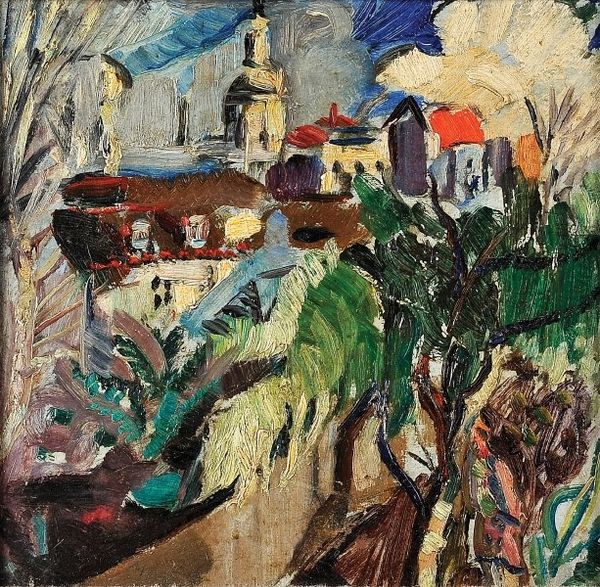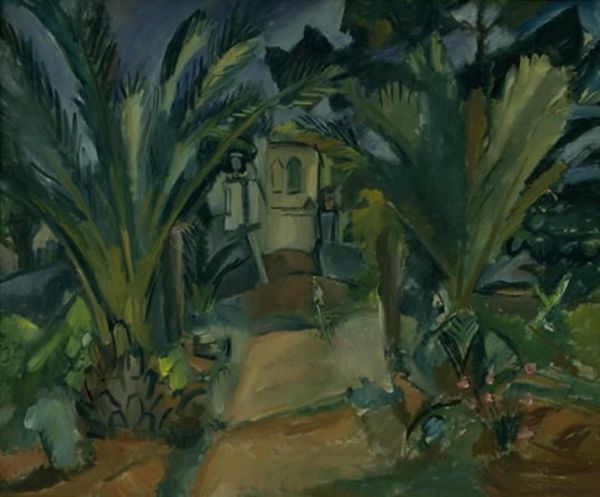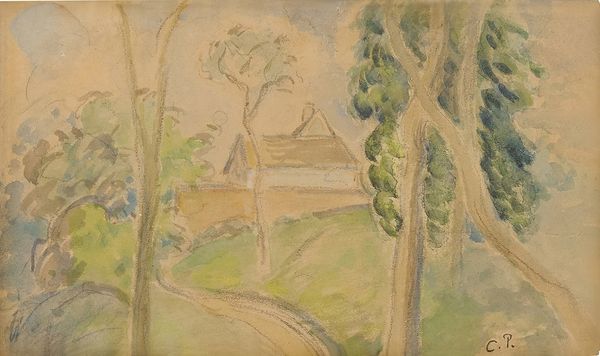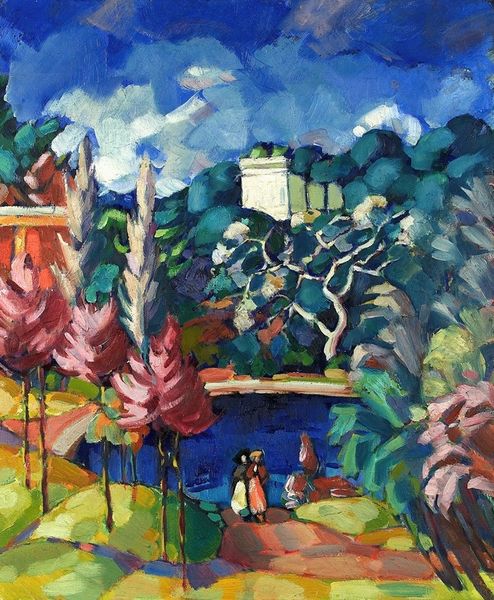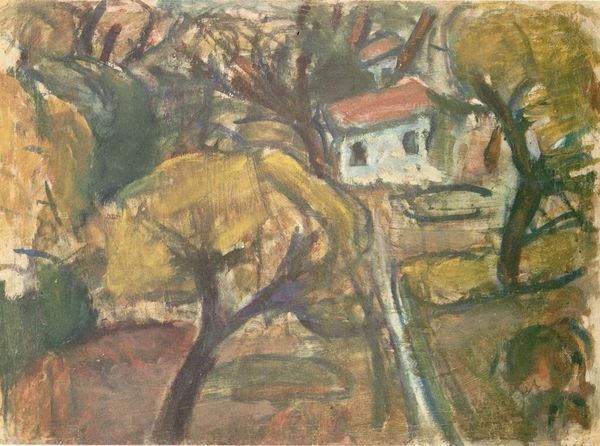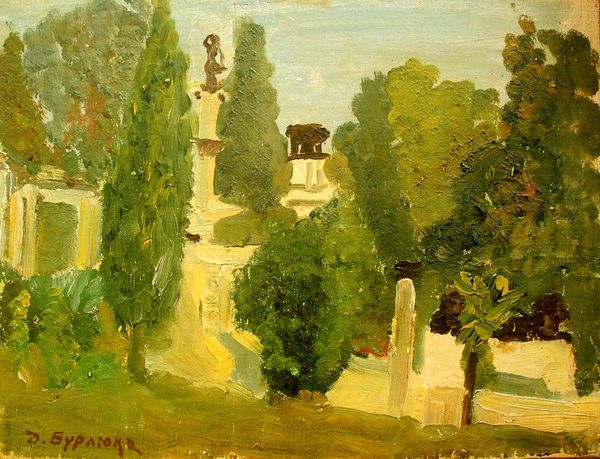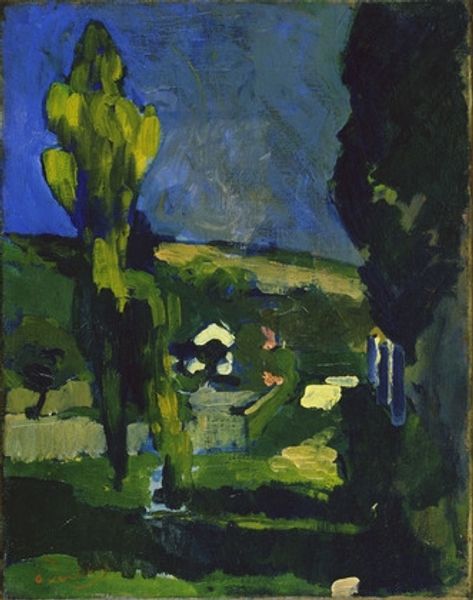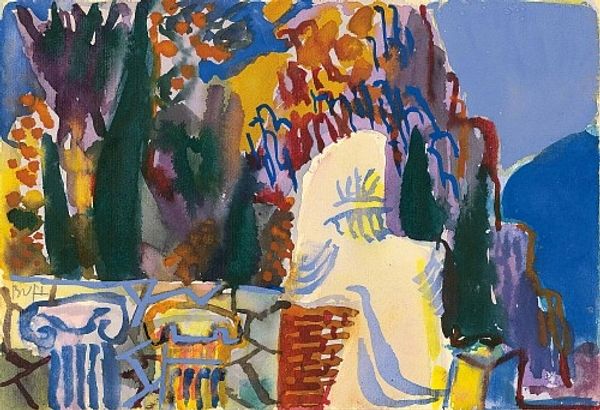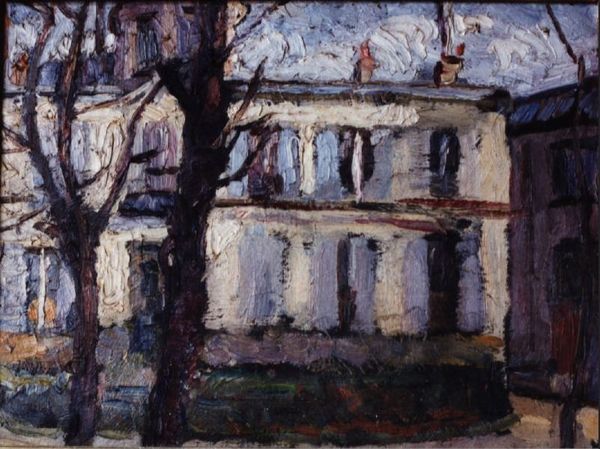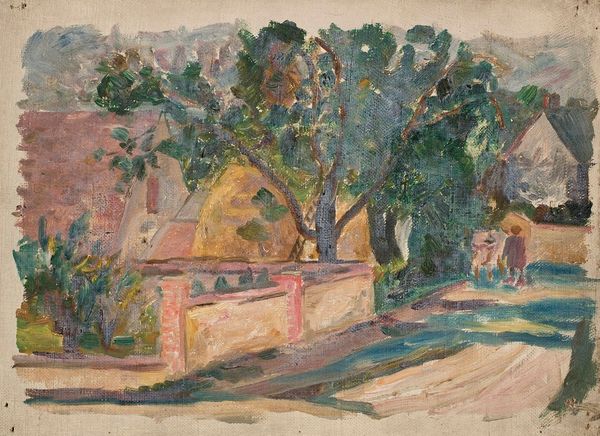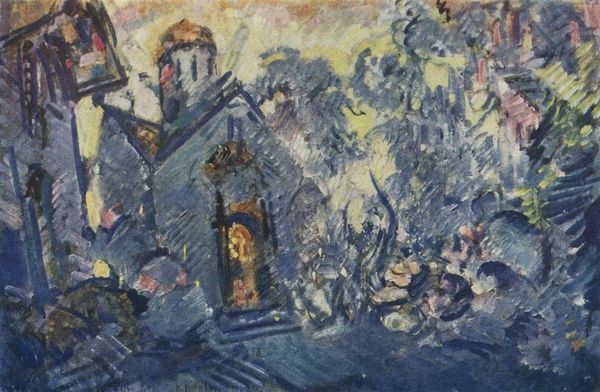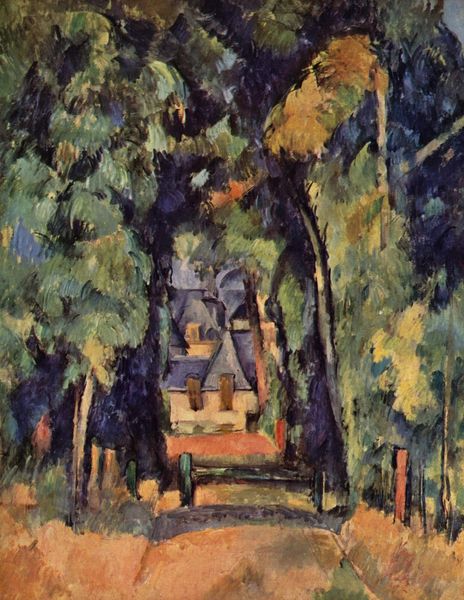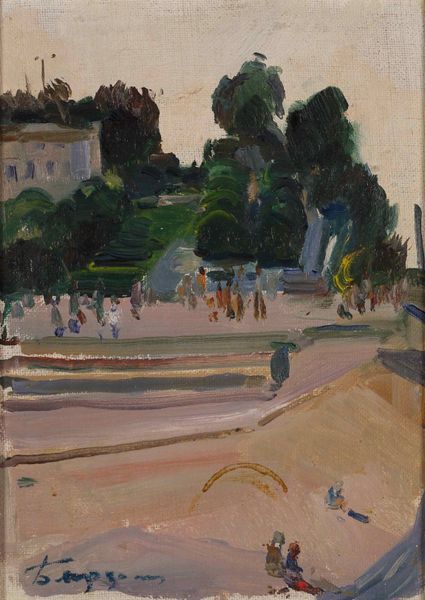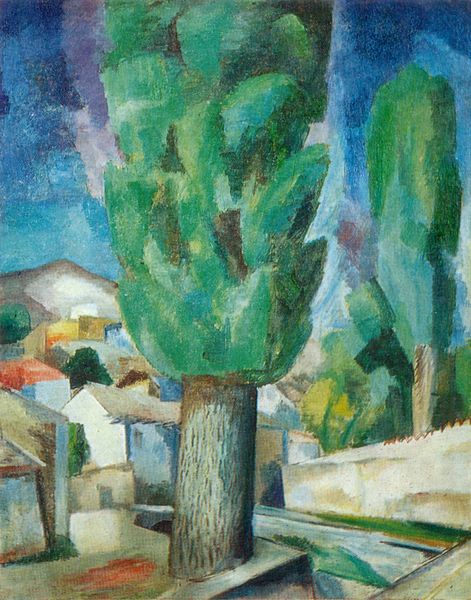
oil-paint
#
oil-paint
#
landscape
#
figuration
#
oil painting
#
expressionism
#
cityscape
#
expressionist
Copyright: Public domain US
Curator: Pyotr Konchalovsky created this striking oil painting titled "Design for the opera by Wolfgang Amadeus Mozart, 'Don Giovanni'" in 1913. Editor: Wow, it hits you, doesn't it? The deep blues and greens, almost churning...It feels more like a dream of Don Giovanni, shadowy and intense, rather than a sunny stage set. Curator: Absolutely, that’s the Expressionist influence at play. While it’s a stage design, Konchalovsky’s personal artistic style and the context of Russian art history transform it. Instead of strict representation, we have emotional evocation through form and color. The 'World of Art' movement valued theater design for its own sake, not just as a background to performance. Editor: Makes me think about the power of opera, all those heightened emotions compressed into these moments. This image almost *smells* of the opera house—dust, old velvet, desperate longing! Is it me, or does that statue look kind of unsteady? Almost like it is melting a little… Curator: The dynamism is definitely intended. Expressionism aimed to reflect subjective emotions and responses. Konchalovsky pushes beyond pure visual accuracy and prioritizes the artist's, and by extension, perhaps Don Giovanni's psychological state. Notice how the cityscape seems to bend to his will, a little off-kilter. Editor: Like everything is at the mercy of Don Giovanni's desires? Makes sense. So it’s less about the set reflecting a real place and more about reflecting a state of mind? Sort of amazing that stage design could convey all that—or was ever intended to do so. Curator: Precisely! These designs were important social commentaries—reflecting society's concerns about its own identity, purpose, anxieties. By taking operatic figures out of simple scenery, he turns the spotlight onto the characters themselves. Editor: Well, whatever he intended, he nailed it. It’s both beautiful and a little unsettling—kind of how I feel after seeing Don Giovanni! Curator: Agreed. And isn't that a testament to its continued relevance? Editor: Definitely a piece that stays with you long after the curtain falls.
Comments
No comments
Be the first to comment and join the conversation on the ultimate creative platform.
